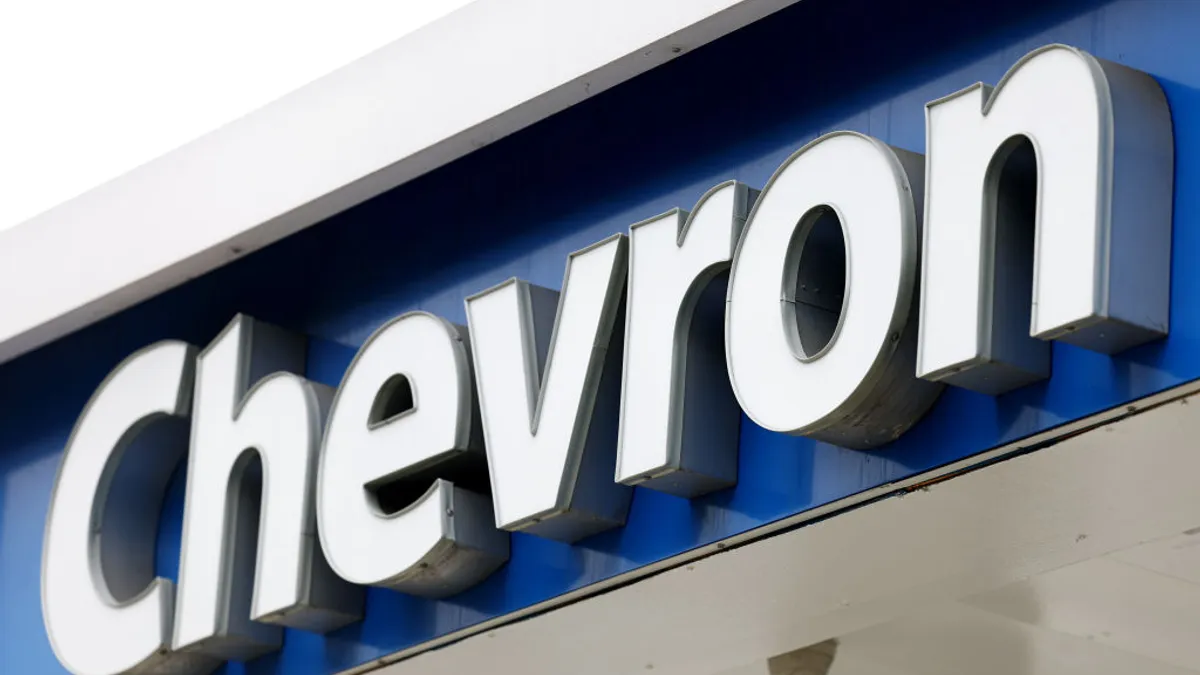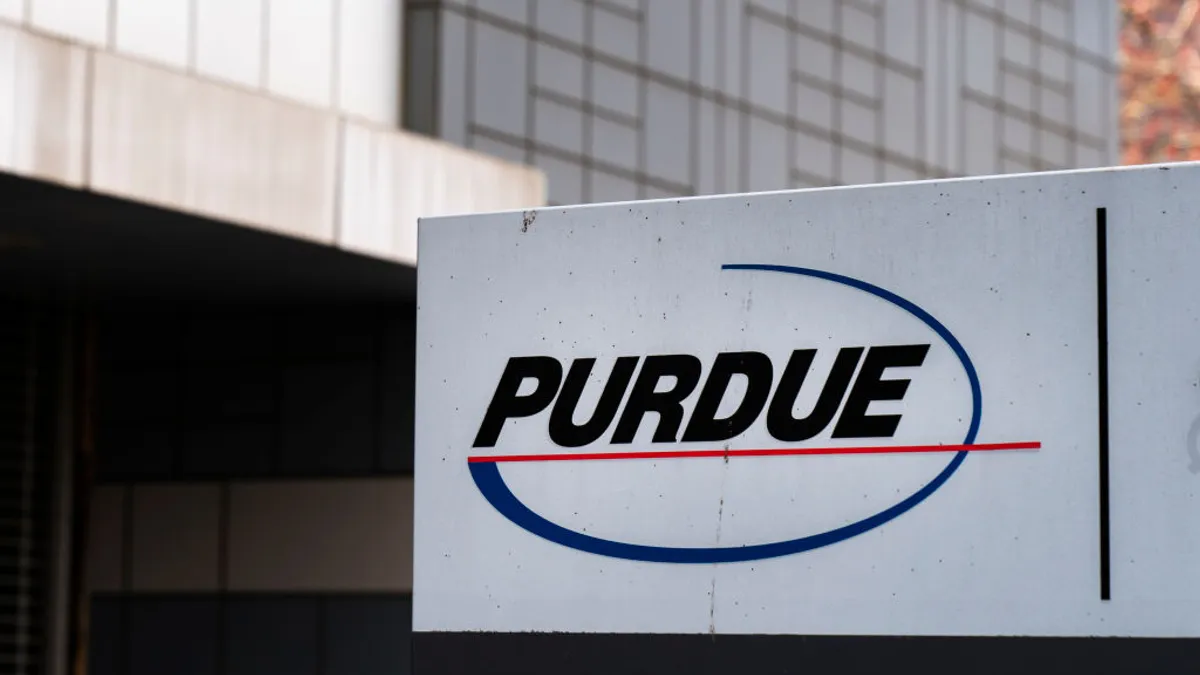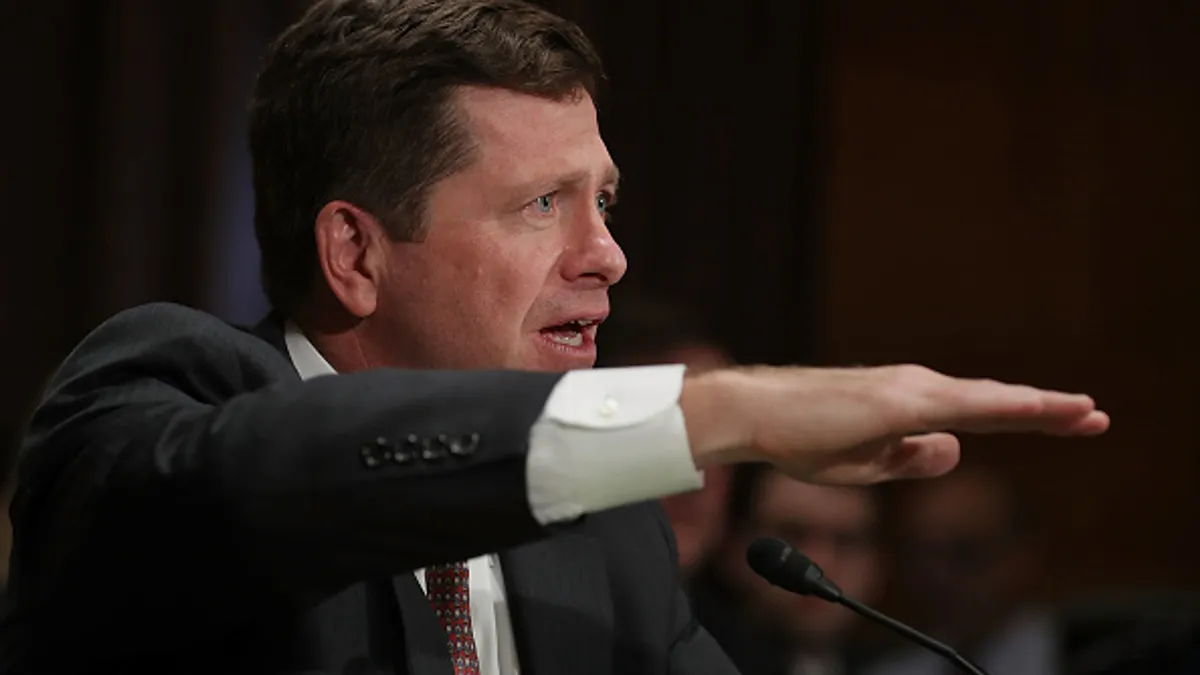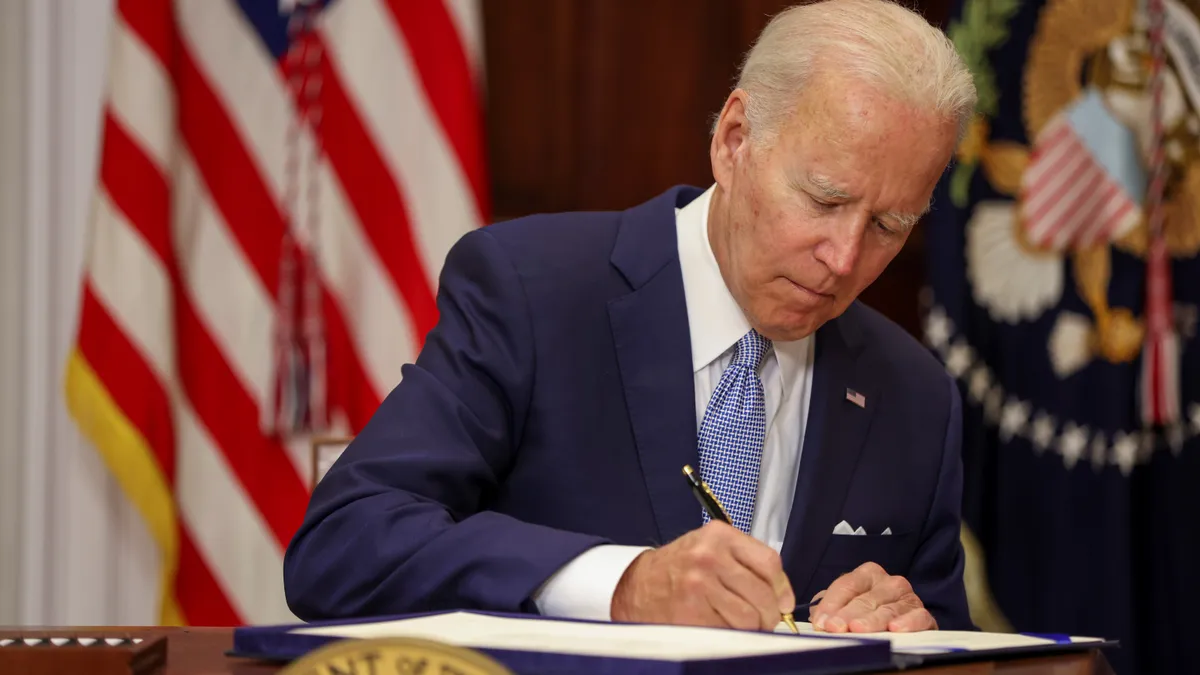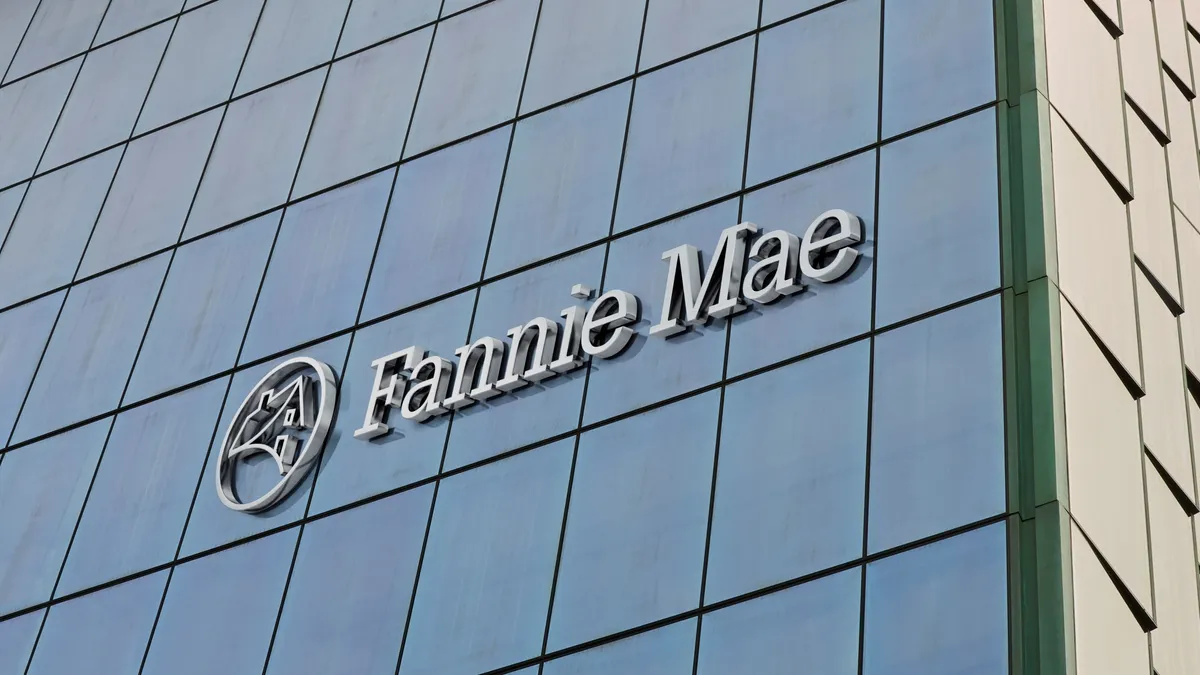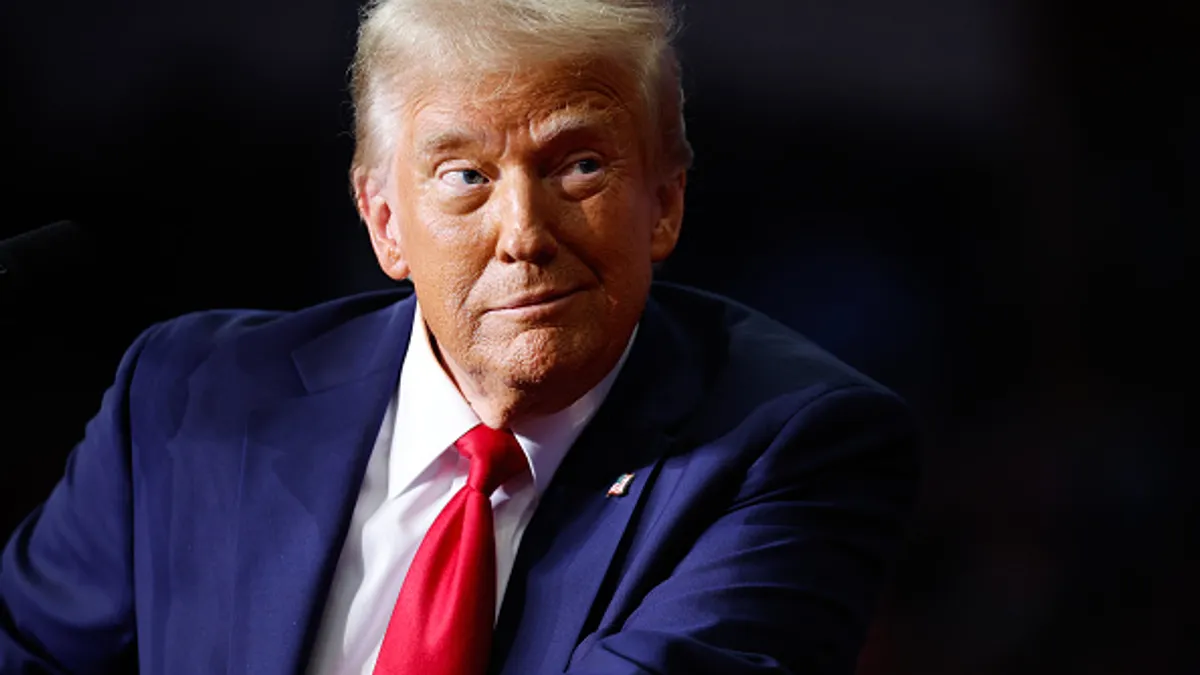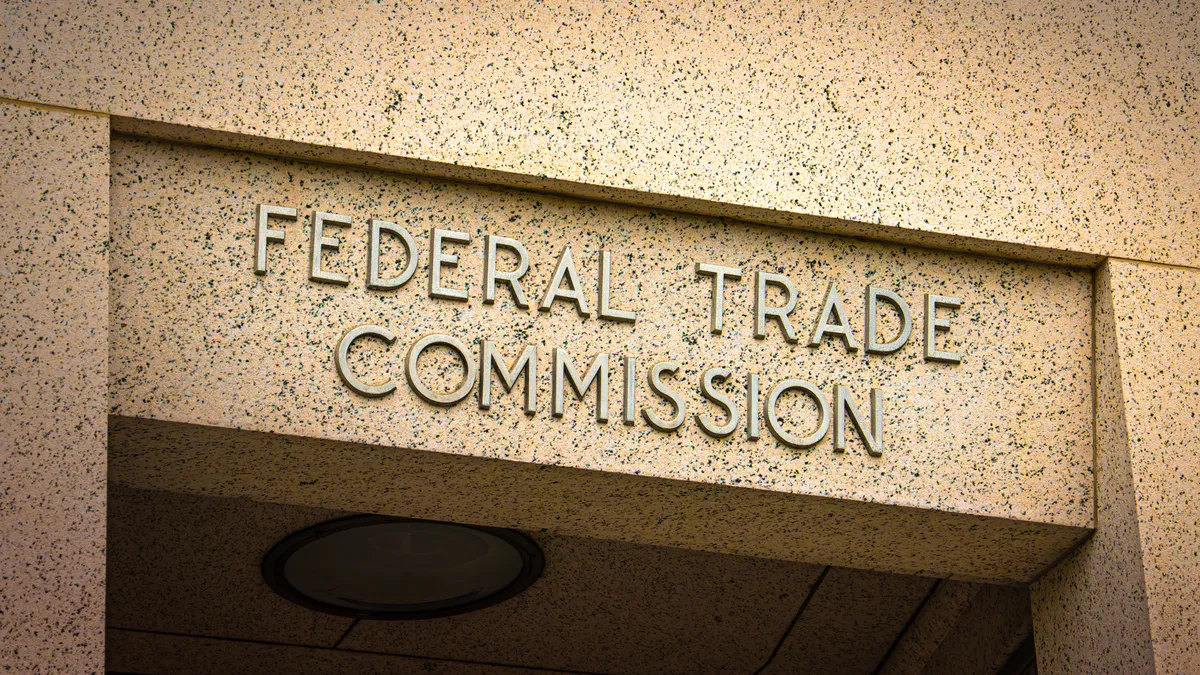In a pair of scathing dissents, the Federal Trade Commission’s two Republican-appointed commissioners accused the agency of operating a pay-for-peace racket by forcing Chevron and Hess Corp. to agree to settlement terms that would never withstand court scrutiny.
In the settlement, Chevron agreed to keep Hess CEO John Hess off its board in exchange for the agency’s sign-off on its merger proposal. The FTC in its complaint said Hess needs to stay off the board because of his vocal support for the Organization of Petroleum Exporting Countries restricting output to keep oil prices high.
“The Commission leveraged its Hart-Scott-Rodino Act authority by threatening to hold up Chevron and Hess’s $53 billion dollar merger even though the lack of a plausible Section 7 [of the Clayton Antitrust Act] theory had long been obvious,” FTC Commissioner Andrew Ferguson said in his dissent.
Chevron and Hess could have challenged the FTC in court on the charge that the deal is anti-competitive, Ferguson said, but from a business standpoint it made sense for them to sign the agreement. The companies have to make only a small concession. But the FTC comes across as extortionist, he said.
“Reducing antitrust enforcement to a pay-for-peace racket inflicts serious injury on the rule of law — and on the Commission’s credibility,” Ferguson said.
Section 7 charge
The FTC in its complaint says the merger, with Hess given a seat on Chevron’s board, would be anti-competitive because of the outsized role the executive would have to push for production constraints that would lead to higher oil prices.
“Chevron … is one of the world’s ten largest oil enterprises by market capitalization,” the FTC said. “Mr. Hess’s participation on Chevron’s Board of Directors would amplify Mr. Hess’s supportive messaging to OPEC and others, thereby meaningfully increasing the likelihood that Chevron would align its production with OPEC’s output decisions to maintain higher prices.”
The complaint cites instances in which Hess, as the head of his mid-sized oil company, publicly encouraged OPEC to keep a lid on production.
In one of those instances, Hess lauded Saudi Arabia for doing a ‘“masterful job leading OPEC+, giving the market what it needs, but not oversupplying it,” the complaint said.
OPEC is considered a cartel. It was created in the early 1960s by Saudi Arabia, Iran, Iraq, Venezuela and other oil-producing countries and is blamed for causing global economic disruption in the 1970s when it pushed energy costs to unsustainable levels by leveraging its control over oil production.
Hess taking a seat on Chevron’s board was not a foregone conclusion, but as part of the terms of the proposed deal, the two companies would agree to “take all steps necessary” to give him one of Chevron’s 12 director seats.
In her dissent, Commissioner Melissa Holyoak called it farcical for the FTC to charge that the merger would violate Section 7 because the two companies, once combined, would represent a share of the global oil market that’s only in the low single digits.
“The delta in concentration from the merger is miniscule,” she said. “Thus, the tangible and intangible assets of Hess Corporation have nothing to do with the violation of law — it’s all about the acquisition of Mr. Hess.”
Holyoak accused the agency of trying to score political points with its use of the HSR review process to block this merger and another merger of oil companies earlier in the year. That earlier deal was between Exxon Mobil and Pioneer Energy Resources and was similarly blocked until the companies agreed not to give Pioneer’s CEO a seat on Exxon’s board because of his OPEC-aligned remarks.
“They are trying to repeat the play here,” said Holyoak. “Rather than accept reality and any political blowback [from upset Democratic lawmakers], the Majority [on the FTC commission] creates a sequel to the fairy tale in Exxon where Section 7 of the Clayton Act means whatever the Majority needs it to mean to appease political demands.”
Holyoak pointed to a term in the Chevron settlement that allows Hess, although he can’t sit on the board, to provide consulting services to the company. Allowing him to do that exposes the absence of legal merit to the Section 7 charge, she said.
“Every fairy tale must [have] a villain, and today’s action unjustifiably gave [Hess] that label,” she said.
In her statement, the FTC’s chair, Lina Khan, defended the agency’s 3-2 decision to condition the merger as it did on the grounds that OPEC is antithetical to open markets by design.
“The Commission’s actions in Chevron-Hess and Exxon-Pioneer mark an important step towards ensuring that U.S. oil producers are serving as a competitive check on OPEC+ rather than subordinating their independent decision-making to the goals set by a cartel,” she said. Commissioners Alvaro Bedoya and Rebecca Kelly Slaughter joined Khan in the statement.
With the settlement entered into, the merger can proceed.



